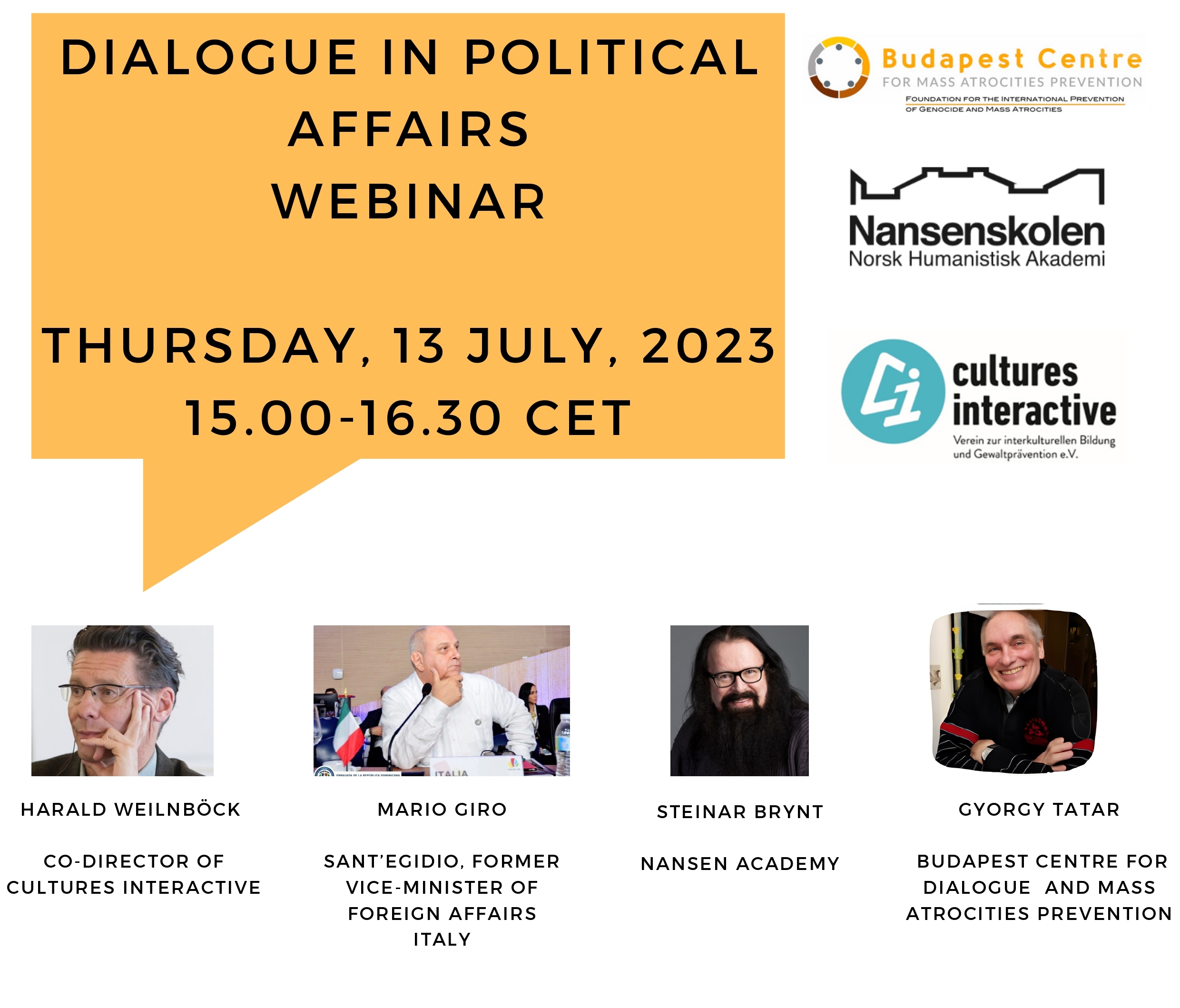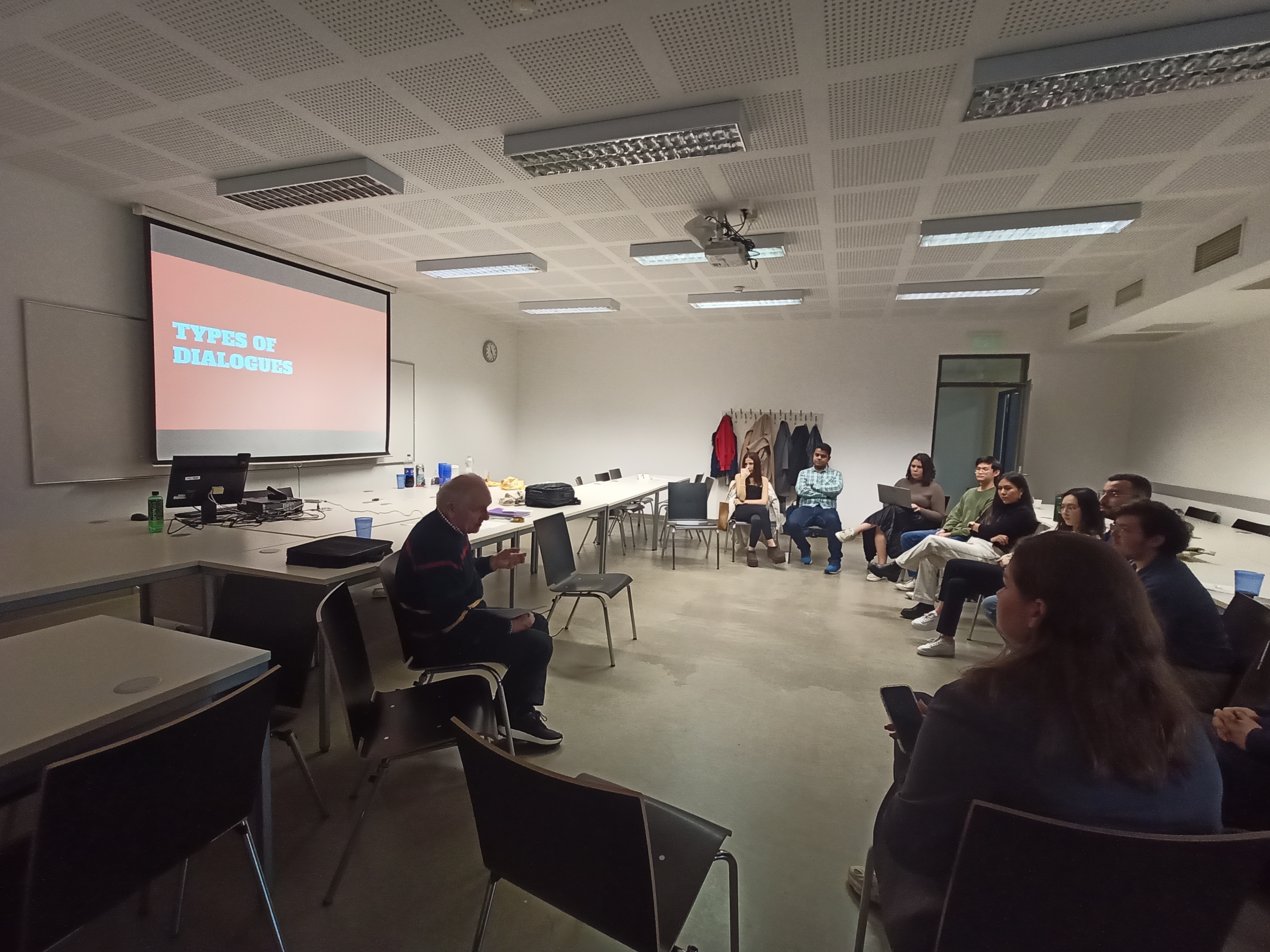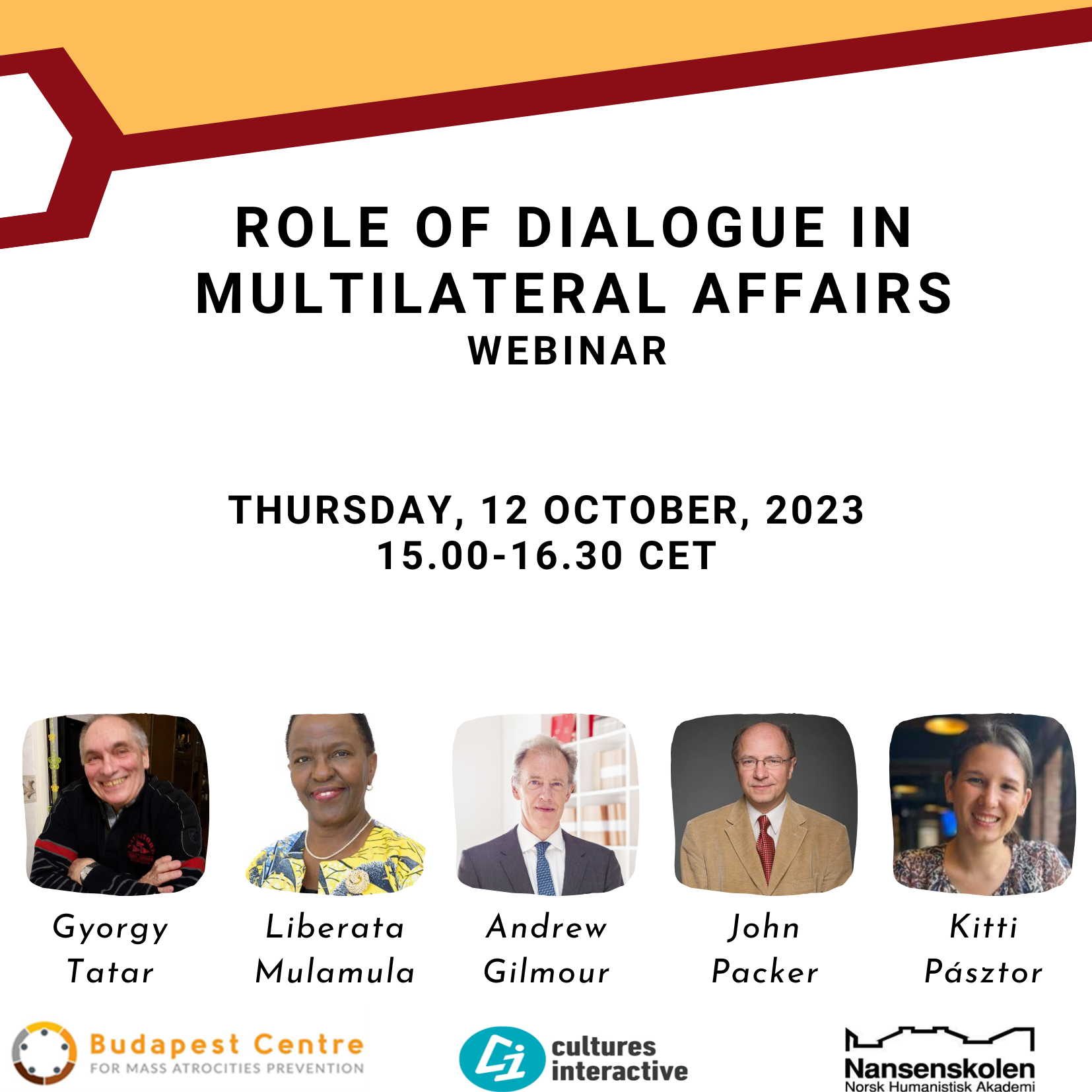- |
- Category: Events
- |
- Category: Events
Inspired by the trainings of the Nansen Center for Peace and Dialogue, the Budapest Centre for Dialogue and Mass Atrocities Prevention completed its first interactive and practice oriented skills building in facilitation of dialogue being a tool for managing diversities, preventing and handling radicalization and violent conflicts. The three four hour sessions took place in cooperation with the College for Advanced Studies of Diplomacy in Practice at the Corvinus University of Budapest.
Based on the positive feedback received from the participants, the Budapest Centre will continue its skills building activities and tailor the agenda of the sessions to the needs of students, political activists and businesspersons with the view to increase their potentials for engaging in communication despite conflicting views.
- |
- Category: Events
- |
- Category: Events
The record of the webinar could be watched .
The updated documents on the „Alliance for Dialogue” and „Institutionalization of Dialogue” you may read here.
- |
- Category: Events
- |
- Category: Events
During this event former senior officials in the UN, OSCE and ICGLR will share their views and experience in using dialogue for addressing sustainably the challenges, in particular the pursuit of human rights and the risks of extreme crimes when shaping an inclusive multipolar world and multilateral system.
Please click here to access the invitation!
Please click here to access the registration link! The webinar link will be sent to your email address before the event.
- |
- Category: Publications
- |
- Category: Publications
A projekt tapasztalatairól készült összefoglaló a Közjogi Szemle 2023/2 számában jelent meg, amelynek pdf változatát itt olvashatja.
- |
- Category: Publications
- |
- Category: Publications
The experience of the series of dialogue has been published in the Hungarian Quarterly Review of Public Law in August 2023. The English version of the article you may wish to read here.
- |
- Category: E-Youth Library
- |
- Category: E-Youth Library
- Click here to read the summary on this year's UN General Assembly Plenary Meeting on the Responsibility to Protect.
The 53rd regular session of the UN Human Rights Council (HRC) was held in Geneva between 19 June and 14 July 2023. As the primary international human rights body, the HRC has the capacity to prevent and respond to mass atrocity crimes, as systematic violations and abuses of human rights can be an indicator of potential genocide, war crimes, crimes against humanity or ethnic cleansing.
- Click here to read the summary which highlights major outcomes and relevant dialogues as they relate to the Responsibility to Protect (R2P), atrocity prevention and populations at risk of atrocity crimes.
- Watch here the interactive dialogue with the Special Adviser to the Secretary-General on the Prevention of Genocide, Alice Wairimu Nderitu, conducted at the 53rd Regular Session of Human Rights Council.
Source : Global Centre for the Responsibility to Protect
- |
- Category: E-Youth Library
- |
- Category: E-Youth Library
Publication of the Global Centre for the Responsibility to Protect. Click here.
PUBLICATION - Drawing on the crisis in Cameroon as an example, this article discusses how practitioners—especially policy makers and non-governmental advocates—can use the Simon-Skjodt Center’s Tools for Atrocity Prevention resource to inform and strengthen policy responses to specific cases. Click here.
VIDEO
PODCAST - Engaging with the powerful
Click here to access this episode from the Centre of Humanitarian Dialogue with Haile Menkerios.
PUBLICATION - Kristina Hook and Ernesto Verdeja examine how social media misinformation (SMM) can worsen political instability and legitimize mass atrocities. They propose several recommendations for the instability and atrocity prevention community. Click here.
- |
- Category: Events
- |
- Category: Events

Mr. Steinar Brynt (48:45 - 1:13:10) spoke about the dilemmas and similarities of the war of thenineties in Western Balkans and the war between Russia and Ukraine since 2014. He pointed to the fact that through the intensification of the conflict situation between the two countries dialogue became increasingly difficult and ultimately stopped. He touched upon issues of nation states, revival of traditionalism, possibilities and limitations of dialogue, the relationship building methodology, why we do not embrace dialogue, can dialogue be counterproductive under conflict and the need for finding a common language with those representing other concepts.







